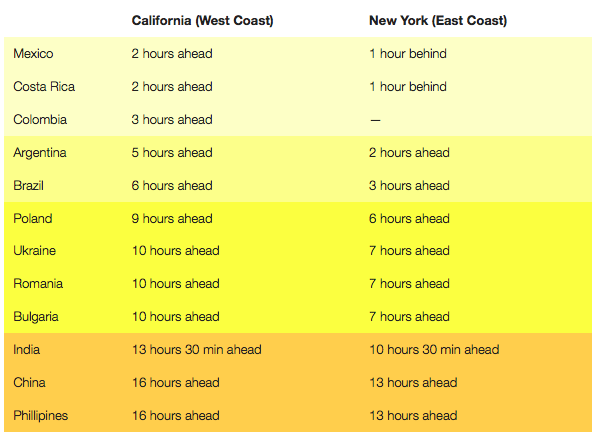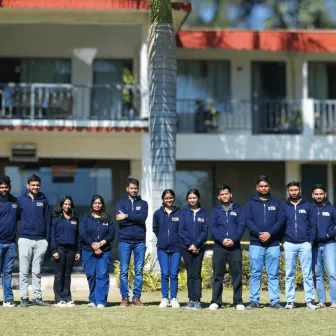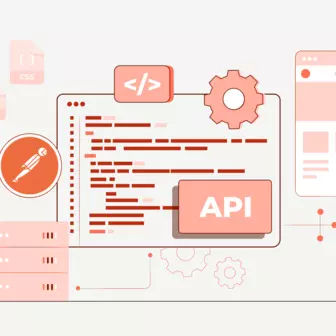Offshore development has proved to be efficient and extremely fruitful. While criticism is unavoidable, you need to go behind the curtain to refresh your thought process. We are going to share best practices to ensure project satisfaction across various stakeholders and the processes.
The time difference
Follow the sun- A work model which comes into play when their happens to be a time zone difference. Generally, the allocated offshore team conducts work in their client's bed time.
For years, this model has reduced the overall product development and response time. Collaboration becomes a challenge though, as the coordination costs double due to some okay-to-happen misunderstandings.
According to Forrester’s report “Rightsource your Agile-Lean ecosystem” September 2012, in agile development projects “geographically distributed teams add complexity, making it harder for teams to communicate the flow of work, backlog status, and issues and impediments.”
With our experience with helping offshore organizations excel, we have decided to share some things which would ensure quality offshore development.
How to overcome the time difference factor? Our Tips.
Ascertain overlap hours

Extracting the mutually best time for your head office and the allocated offshore team is the foundation of every remote initiative. The timezone you are going to coordinate around, their business hours, their holidays, common holidays and etc need to be sorted out before you make a call. If a part of the team is located in the United States and the rest in Europe, it is fine to conduct meetings in the 2PM-4PM time slot. While the people in Europe can discuss what has been done today, the US team can explain their day ahead.
Share a common calendar
Each team member’s schedule should be transparent to arrange timely meetings and simplify the overall process. Using the Google calendar or similar planner with a sharing facility should be your topmost priority to ensure effective coordination across teams.
Embrace Flexibility
Inconveniences are common in distributed teams due to time differences. Sometimes your team might have to stay late for a meeting, sometimes you might need to get up earlier. If communication remains less proactive, try shifting your schedule to match the working hours of your offshore team. As soon as you are in sync (usually this takes 1-2 sprint cycles), you can get back to your regular schedule.
Restrict the frequency of meetings
It is highly recommended to maintain regular communication with your offshore team, excessive meetings can prove to drain efficiency and productive across both the teams. You should also pay attention to what your resources are getting engrossed into and what output is coming out from them.
Focus on the meetings that are really necessary to keep track of a project, like daily sprint sessions, and weekly general meetings. You should utilize various project management tools for distributed teams.
Build trust offshore
At OpenSense Labs, we abide by our values to place our clients above everything, to innovate with opportunity, and to deliver satisfaction by inculcating agile practices. The timezone difference is understood by every member of the team which ensures supreme cooperation and coordination. Running by the clock sometimes isn't quite sufficient. Hence, to ensure timely and successful deliveries, we work more the billable hours to assure ourselves of quality delivery.
Bring agile into practice
Agile methodologies have been a key ingredient of service agencies. Remote teams, usually, employ Scrum. At OpenSense Labs, project communication has always been given profound emphasis. A lot of our projects follow agile Scrum. Which involves daily stand-up meetings or scrum meetings. In projects where a waterfall process suits better, we still find a way to bring agile into the processes.
As per global standards, the client team is supposed to consist of system architects, product owners, and Scrum masters while the vendors comprise of the engineering team on their site. At OpenSense Labs, we believe in having a scrum master in the house to ensure stability and excellence across project deliveries. We find that having an in-house Scrum Master reduces bottleneck in communication and increases team’s morale.
Communication standards

At Opensense Labs, we adhere to certain practices which allow constant interaction and communication with the respective stakeholders. The team deployed into the project collectively participates in by weekly in-house standups and cross-organization meetings. Progress in projects is monitored and necessary action is taken in time to ensure client success. Some communication mediums we use are JIRA, Slack, Zoom, and Confluence. We practice strict communication which helps us stay exceptionally organized and maintain the extreme transparency we believe in.
Our clientele satisfaction rate has encouraged us to push our own horizon and keep delivering ease to small and large-scale businesses. We want to stick to our goal of spreading stellar digital experiences and platforms as per client requirements.
Why does the time difference prove useful?
24*7*365 services due to cultural differences
So when time difference arises, organizations can give their clients continued services and support, 24 hours a day, 7 days a week. Also, the holiday patterns differ in different countries, as the culture and heritage vary. This results in providing yearlong support to the customers, thereby going a step forward in giving the customers 365 days of continued service, a year, even when locally, all are getting their share of holidays.
Quality customer service
With quality customer service being the order of the day and increasingly becoming demanding and essential in terms of competition and existence of an organization, each and every company is looking at giving their customers reliable service and sharing a feeling of empathy with them. For this, choosing a country like India that has varied time difference proves to be useful.
On-site and off-site team coordination
Many large organizations have an onsite and offsite team, who work on various projects in a combined manner. The onsite team that works in the parent country, works in the morning hours, on the project requirements received from the client and passes it on the outsourced company in countries like India, to be processed here. By then, it is morning in India, where the team works on the requirements.
Once they are done with their share of work, they send it back to the parent country, where it is morning again, and the onsite team works on the remaining work and sends the update to the client. This brings in an excellent coordination of work, among the onsite and offsite teams.
Reduced costs
So how is this whole issue of time zone proving useful in terms of cost? Well, the answer is very simple and obvious. In countries like India, employees are also ready to work at night. So the same space can be utilized in the daytime as well, for catering to the needs of another team or probably another country that has a different time zone, so that more productivity is also called for, with less cost involved.If managed effectively, the time difference can prove highly advantageous to the outsourcing companies. With proper planning and lots of research done, prior to outsourcing a project offshore, it is a proven fact that success is definite!
Effective utilization of time
From the way the onsite and offsite team coordinate and work, depending on the time zone differences, it is very obvious that effective utilization of time is also being done, as work is being done on a given project even at nights, thereby speeding up the process of finishing the task. This results in the timely submission of the project, thereby increase in customer satisfaction, reliability and loyalty.
We believe in an ideology which says - A similar mission doesn’t require a similar roof. Availability of multiple cross-nation communication channels enables us to establish transparency and productivity across various processes. For your concerns regarding outsourcing your next project, you can speak with us at [email protected].
Subscribe
Related Blogs
Trek n Tech Annual Retreat 2025: A 7-Day Workcation of OSL

OSL family came together for the Trek n Tech Annual Retreat 2025, a 7-day workcation set amidst the serene beauty of…
Exploring Drupal's Single Directory Components: A Game-Changer for Developers

Web development thrives on efficiency and organisation, and Drupal, our favourite CMS, is here to amp that up with its…
7 Quick Steps to Create API Documentation Using Postman

If you work with API , you are likely already familiar with Postman, the beloved REST Client trusted by countless…




